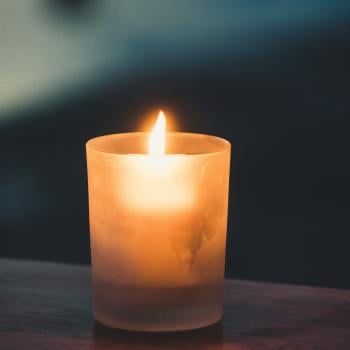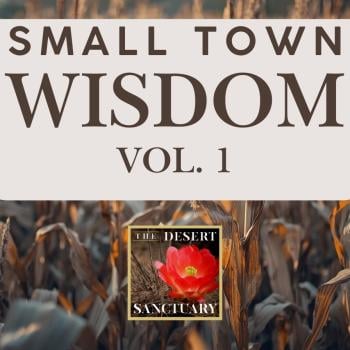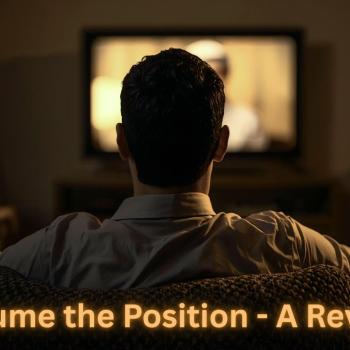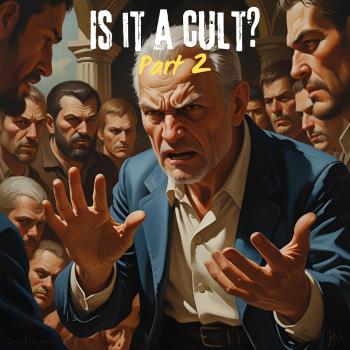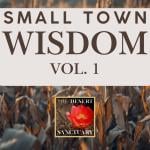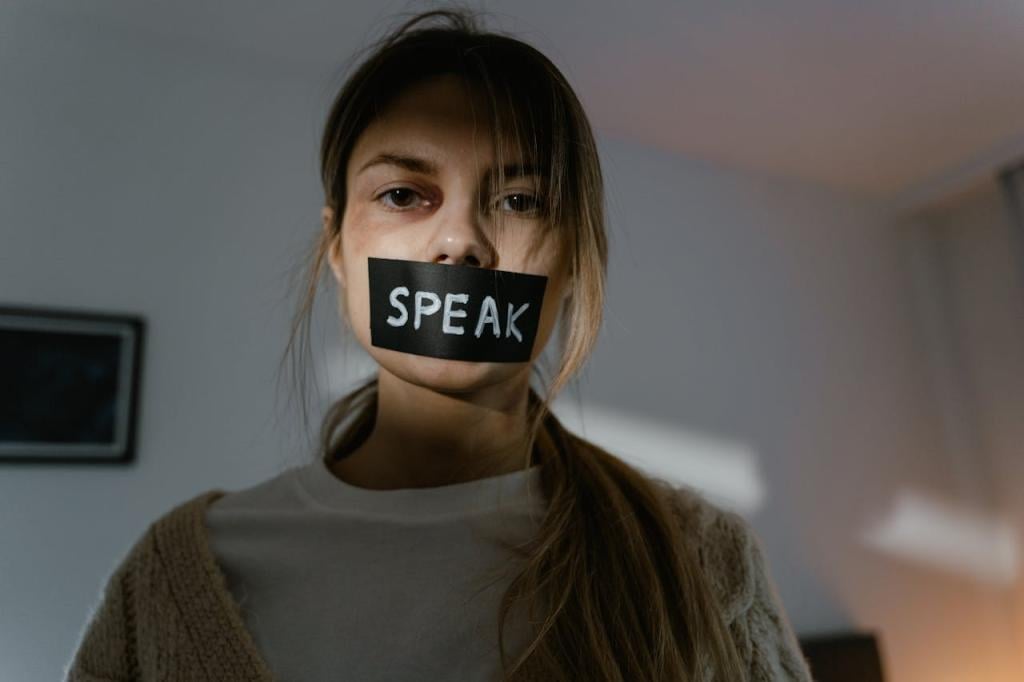
Excerpt from the book Copyright © 2025 by Karl Forehand
Learn From Survivor Stories
“Just listening is what turns a victim into a survivor.”
– Christine Ristaino
When we ask women who have survived abuse and narcissistic relationships within organized religion what men can do to help the situation, they almost always express a desire for men to listen to their survivor stories. Religion encourages us to study theology, leadership, and growth practices. Unfortunately, survivors’ stories are often overlooked due to the time needed to build relationships and foster effective communication.
It is vital for survivors of various forms of abuse, neglect, and harmful community practices to share their stories and have someone listen with empathy. This communicates to the survivor, “I hear you,” and helps transform them from victims into survivors. Listening to what they want to express and having the patience to understand their words is essential. Sometimes, this takes 20 minutes, while at other times, it may take an hour and a half. Everyone who has endured trauma from a system needs both allies and advocates. While advocates challenge systems, allies create a space for victims and survivors to share their stories.
For those of us who have been pastors, we often hear about issues like trauma and convince ourselves that we can challenge the system that created it. While this is a noble pursuit, it comes with challenges, as high-control systems and families resist change. When they allow abuse to persist, leaders often prioritize the system over the individual, making confrontation difficult. However, even if we cannot advocate for survivors prepared to share their stories, we can listen to them and believe what they tell us.
I say, “Listen and believe,” because victims and survivors consistently tell us that. False reporting occurs at an extremely low rate, as low as 2%.[1] This means that these victims are truthful 98% of the time. Reflect on the reality of abuse and consider how much a survivor risks by sharing their experience. The power imbalance in many religions and high-control families is one of the factors that allow abuse to persist. When someone shares their story with us, we acknowledge that trauma and abuse have likely undermined their entire lives, making the destruction of the abuser’s career seem trivial compared to what they endure for speaking out.
Ending the Culture of Silence
When individuals choose not to speak up in a group, the primary reason is often fear. It may also arise from feelings of intimidation or social agreements that discourage discussing specific topics outside the group. They might be worried about the consequences of voicing their opinions, especially in high-control families, religions, or other cult-like organizations.
My son recently visited from overseas, and we finally had all our children and grandchildren together for the first time in a long time. Although we faced communication challenges due to our past experiences, we discussed issues we had never addressed. As I mentioned, “We are still not perfect,” but at least we recognized that we could be honest with one another. While it was somewhat painful, we understood that the world wouldn’t end if we expressed our wants or dislikes, even if the topic was as simple as pizza.
The term “culture of silence” likely originates from Paulo Freire, who used it to describe how people suppress discussing their experiences. When we talk to survivors on our podcast, they sometimes refer to it as “getting small” when they conform to the norms of the group or family to avoid causing conflict. This fear of repercussions from speaking out or complaining can hinder open communication and problem-solving for the group or family.
When people cannot speak freely, especially about their wounds, we may struggle to address our society’s most critical issues. Workplaces, communities, and families must create safe spaces where individuals feel comfortable discussing their concerns without fear of retaliation. The best way to achieve this is for leaders to demonstrate that honest communication will not be used against whistleblowers.
From Victim to Survivor
When victims share their stories, they begin to transform into survivors. They transition from a state of powerlessness to a deep sense of empowerment. By listening to them, we become allies in their healing journey. They adopt a new identity to carry into the future instead of the label imposed by their abusers to keep them feeling small and silent.
When the victim shares their story, they should focus on the tragedy of what happened. However, as they recount their experiences, they focus on rebuilding their lives. We often notice that while individuals share their experiences of abuse, they sometimes say, “I’ve never revealed this much of my story before.” Afterward, they display a renewed sense of empowerment, evident in their body language and choice of words.
It is essential not to overlook suffering by disguising it with positive language and clichés. This approach only perpetuates the problem. However, when victims share their struggles and experiences openly, they can emerge as survivors and begin to envision the positive aspects they desire for their future lives.
We also remind survivors to share as much or as little as they wish when telling their stories. As I mentioned, expressing their stories is essential for communicating with us. We try to avoid interrupting them unless they significantly veer off track due to nerves.
Stories Create Awareness
The first few books I wrote after my deconstruction were essentially survivor stories, even though I didn’t know enough to call them that then. Occasionally, some people questioned my decision to publish them, but I soon realized that the books and blogs I’ve created benefit me just as much as they benefit my audience.
The listener often receives a relatable narrative that connects them to the survivor’s experiences. Readers of my stories may find the words to express their problems and share their stories. These narratives foster empathy because when people hear them, they might think, “Me too!”
Stories are how we learn, remember, and connect with others who share similar experiences. Trauma is a relatively modern concept, even though schools, organizations, and individuals are exploring it. A similar story can validate our experiences and empower us to speak out. If I were the only one, it might be difficult to muster the courage to bring the situation to light. But when we recognize that others have gone through similar situations, we understand it’s a broader issue than just within our immediate group.
We view our podcast not only as a source of information and learning for others but also as a way to educate ourselves. We gain insights from almost every episode as we listen to people’s stories, which resonate with our experiences or introduce new information we hadn’t encountered before.
Stories Matter
Stories help us better understand the world. When someone shares a story about their experiences, it goes beyond the facts of those encounters. Stories also capture nuances that enhance our appreciation of situations different from our own. Even when our narratives are similar, we recognize that human experience is complex; even if the same event happens to two people, they are likely to experience it differently.
Stories also connect us with others. Sometimes, when Laura and I listen to a story, we genuinely feel what the storyteller is going through. They can confirm our assumptions while describing similar experiences in vivid detail. Stories teach us about things we’ve experienced but didn’t fully understand, and they inform us socially about things we have yet to encounter. We have explored practices, shared beliefs, and healing therapies simply because someone mentioned the personal benefits they gained when telling their story.
A story shared with passion can inspire us to engage in the difficult work of healing and understand the roots of our original trauma. Reflecting on my life, I wish I had approached every relationship by asking, “Tell me your story.” I also wish I had listened to every story I encountered without judgment and resisted the temptation to “fix” them. Listening with empathy and compassion is essential.
Stories Are Sacred
At this point, you should recognize that my denomination of origin is the Southern Baptist Convention. My relationship with the scriptures has sometimes been toxic. I agree with Paul that the Bible might be “useful,” but certainly not infallible, immutable, or any other claims we make about this ancient text.
It would have been helpful for me to view the scriptures from my origin story as reflections of the lived experiences of the people who wrote them. I now believe that it’s impossible to honestly know what God is like or what the afterlife will entail when we pass away. Therefore, we create more significant problems when we assume that our holy books are written directly by God or that they possess special powers rather than simply enlightening us about the thoughts and beliefs of the people at the time they were written.
I now refer to theological statements as “assumptions” because I approach theology and religion with genuine appreciation and thorough research, and this is what I discovered. At a certain point in history, someone decided that their oral tradition needed to be permanently recorded. This practice and mindset continue among modern theologians. They reflect on the assumptions of their predecessors, and, influenced by their current culture and various methods of gathering information, they form new assumptions. These new assumptions are documented in new literature, and sometimes, the theologian even charges people to discuss these findings or establishes organizations that accept volunteer labor.
Unfortunately, we took these assumptions too seriously, viewing them as perfect or sacred and considering them timeless guides. We overlooked the aspects of these texts that recount people’s cultural beliefs and the valuable lessons they learned that led them to the truth. Naturally, they also illustrate the mistakes arising from a flawed understanding. Holy texts are often more about how not to think than about an assumption that is universally true for everyone.
When a survivor says, “This is how I see God now,” we tell them their story is sacred. It’s not about measuring their story against the narrative inherited from others’ assumptions but about honoring it as something precious and valuable.
Stories aren’t just about God and the afterlife. They are also about the human experience. If we are going to believe that there is divinity, we should deeply investigate the idea that this reality exists in all of us and that the stories we tell are sacred. The survivor’s story can reveal so much about the problem and the solution.
Listening will help us learn to navigate our recovery and bring us closer to the truth.
Survivor Stories – Action Steps
What does the term “Survivor” mean to you?
Why is it difficult to share our stories?
Why is it beneficial to share our stories?
Spend 5 minutes writing freely about your thoughts on this chapter and the questions that arose for you.
[1]https://www.nsvrc.org/sites/default/files/Publications_NSVRC_Overview_False-Reporting.pdf
Learn to be Where You Are (Presence)
Are you serious about deconstruction and asking bigger questions?
If that’s the case, this book was created for you. As a former pastor, I made the mistake of deconstructing a bit and then trying to start something new, as I was trained to do. The problem with that approach is that I wasn’t ready to begin something new.

I hadn’t delved deeply enough or asked enough questions. The first stage of deconstruction typically includes assessing our beliefs regarding hell and the afterlife, supporting queer individuals and women in their fight for equality, and achieving a better understanding of racism and privilege.
Many people in deconstruction communities expend significant effort criticizing Evangelicals and attempting to gain a following. While I believe they deserve intense criticism, this strategy fails to effectively tackle the problem because they generally don’t listen to us!
Our tendency to punish our former organizations sometimes overlooks the challenging process of healing and growth. It is the same trap we fell into in our former associations.

Campfires occupy a special spot in the mosaic of history. They act as communal hubs across different cultures and faiths. The campfire’s circular design fosters equal participation within the collective group. The flames at the center draw our focus and encourage face-to-face interactions as we exchange experiences, wisdom, and insights about the world beyond. It is where legendary myths and tales are born.
Order Now – Study Questions in each chapter!
This book is named Campfires in the Desert as it stems from nearly 400 discussions we held with individuals on our podcast, The Desert Sanctuary, and our aspiration to improve.
Available now!
Thanks for considering us, autographed copies are $20
Karl Forehand Campfires in the Desert – A Soft Book Release. Karl Forehand is a former pastor, podcaster, and award-winning author. His books include Out into the Desert, Leaning Forward, Apparent Faith: What Fatherhood Taught Me About the Father’s Heart, The Tea Shop, and Being: A Journey Toward Presence and Authenticity. He is the creator of The Desert Sanctuary podcast and community. He has been married to his wife Laura for 35 years and has one dog named Winston. His three children are grown and are beginning to multiply! You can read more about the author here.





